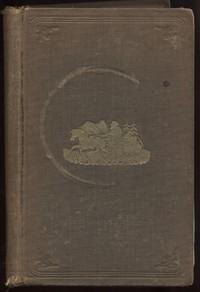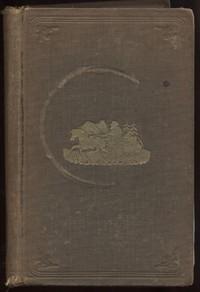Read this ebook for free! No credit card needed, absolutely nothing to pay.
Words: 143918 in 28 pages
This is an ebook sharing website. You can read the uploaded ebooks for free here. No credit cards needed, nothing to pay. If you want to own a digital copy of the ebook, or want to read offline with your favorite ebook-reader, then you can choose to buy and download the ebook.


: Unitarianism in America: A History of its Origin and Development by Cooke George Willis - Unitarianism United States
UNITARIANISM IN AMERICA.
A HISTORY OF ITS ORIGIN AND DEVELOPMENT.
INTRODUCTION.--ENGLISH SOURCES OF AMERICAN UNITARIANISM.
The sources of American Unitarianism are to be found in the spirit of individualism developed by the Renaissance, the tendency to free inquiry that manifested itself in the Protestant Reformation, and the general movement of the English churches of the seventeenth century toward toleration and rationalism. The individualism of modern thought and life first found distinct expression in the Renaissance; and it was essentially a new creation, and not a revival. Hitherto the tribe, the city, the nation, the guild, or the church, had been the source of authority, the centre of power, and the giver of life. Although Greece showed a desire for freedom of thought, and a tendency to recognize the worth of the individual and his capacity as a discoverer and transmitter of truth, it did not set the individual mind free from bondage to the social and political power of the city. Socrates and Plato saw somewhat of the real worth of the individual, but the great mass of the people were never emancipated from the old tribal authority as inherited by the city-state; and not one of the great dramatists had conceived of the significance of a genuine individualism.
The Renaissance advanced to a new conception of the worth and the capacity of the individual mind, and for the first time in history recognized the full social meaning of personality in man. It sanctioned and authenticated the right of the individual to think for himself, and it developed clearly the idea that he may become the transmitter of valid revelations of spiritual truth. That God may speak through individual intuition and reason, and that this inward revelation may be of the highest authority and worth, was a conception first brought to distinct acceptance by the Renaissance.
A marked tendency of the Reformation which it received from the Renaissance was its acceptance of the free spirit of individualism. The Roman Church had taught that all valid religious truth comes to mankind through its own corporate existence, but the Reformers insisted that truth is the result of individual insight and investigation. The Reformation magnified the worth of personality, and made it the central force in all human effort. To gain a positive personal life, one of free initiative power, that may in itself become creative, and capable of bringing truth and life to larger issues, was the chief motive of the Protestant leaders in their work of reformation. The result was that, wherever genuine Protestantism appeared, it manifested itself by its attitude of free inquiry, its tendency to emphasize individual life and thought, and its break with the traditions of the past, whether in literature or in religion. The Reformation did not, however, bring the principle of individuality to full maturity; and it retained many of the old institutional methods, as well as a large degree of their social motive. The Reformed churches were often as autocratic as the Catholic Church had been, and as little inclined to approve of individual departures from their creeds and disciplines; but the motive of individualism they had adopted in theory, and could not wholly depart from in practice. Their merit was that they had recognized and made a place for the principle of individuality; and it proved to be a developing social power, however much they might ignore or try to suppress it.
In its earliest phases Protestantism magnified the importance of reason in religious investigations, although it used an imperfect method in so doing. All doctrines were subjected more or less faithfully to this test, every rite was criticised and reinterpreted, and the Bible itself was handled in the freest manner. The individualism of the movement showed itself in Luther's doctrine of justification by faith, and his confidence in the validity of personal insight into spiritual realities. Most of all this tendency manifested itself in the assertion of the right of every believer to read the Bible for himself, and to interpret it according to his own needs. The vigorous assertion of the right to the free interpretation of the Word of God, and to personal insight into spiritual truth, led their followers much farther than the first reformers had anticipated. Individualism showed itself in an endless diversity of personal opinions, and in the creation of many little groups of believers, who were drawn together by an interest in individual leaders or by a common acceptance of hair-splitting interpretations of religious truths.
The Protestant Church inculcated the law of individual fidelity to God, and declared that the highest obligation is that of personal faith and purity. What separated the Catholic and the Protestant was not merely a question of socialism as against individualism, but it was also a problem of outward or inward law, of environment or intuition as the source of wholesome teaching, of ritualism or belief as the higher form of religious expression. The Protestants held that belief is better than ritual, faith than sacraments, inward authority than external force. They insisted that the individual has a right to think his own thoughts and to pray his own prayer, and that the revelation of the Supreme Good Will is to all who inwardly bear God's image and to every one whose will is a centre of new creative force in the world of conduct. They affirmed that the individual is of more worth than the social organism, the soul than the church, the motive than the conduct, the search for truth than the truth attained.
These tendencies of Protestantism found expression in the rationalism that appeared in England at the time of the Commonwealth, and especially at the Restoration. All the men of broader temper proclaimed the use of reason in the discussion of theological problems. In their opinion the Bible was to be interpreted as other books are, while with regard to doctrines there must be compromise and latitude. We find such a theologian as Chillingworth recognizing "the free right of the individual reason to interpret the Bible." To such men as Milton, Jeremy Taylor, and Locke the free spirit was essential, even though they had not become rationalists in the modern philosophical sense. They were slow to discard tradition, and they desired to establish the validity of the Bible; but they would not accept any authority until it had borne the test of as thorough an investigation as they could give it. The methods of rationalism were not yet understood, but the rational spirit had been accepted with a clear apprehension of its significance.
Toleration had two classes of advocates in the seventeenth century,--on the one hand, the minor and persecuted sects, and, on the other, such of the great leaders of religious opinion as Milton and Locke. The first clear assertion of the modern idea of toleration was made by the Anabaptists of Holland, who in 1611 put into their Confession of Faith this declaration of the freedom of religion from all state regulation: "The magistrate is not to meddle with religion, or matters of conscience, nor compel men to this or that form of religion, because Christ is King, and Lawgiver of the church and conscience." When the Baptists appeared in England, they advocated this principle as the one which ought to control in the relations of church and state. In 1614 there was published in London a little tract, written by one Leonard Busher, a poor laborer, and a member of the Baptist church that had recently been organized there. The writer addressed the King and Parliament with a statement of his conviction "that by fire and sword to constrain princes and peoples to receive that one true religion of the Gospel is wholly against the mind and merciful law of Christ." He went on to say that no king or bishop is able to command faith, that it is monstrous for Christians to vex and destroy each other on account of religious differences. The leading Protestant bodies, especially the established churches, still held to the corporate idea of the nature of religious institutions; and, although they had rejected the domination of the Roman Church, they accepted the control of the state as essential to the purity of the church. This half-way retention of the corporate spirit made it impossible for any of the leading churches to give recognition to the full meaning of the Protestant idea of the worth of the individual soul, and its right to communicate directly with God. It remained for the persecuted Baptists and Independents, too feeble and despised to aspire to state influence, to work out the Protestant principle to its full expression in the spirit of toleration, to declare for liberty of conscience, the voluntary maintenance of worship, and the separation of church and state.
After the Restoration, and again after the enthronement of William and Mary, it became a serious practical problem to establish satisfactory relations between the various sects. All who were not sectarian fanatics saw that some kind of compromise was desirable, and the more liberal wished to include all but the most extreme phases of belief within the national church. When that national church was finally established on the lines which it has since retained, and numerous bodies of dissenters found themselves compelled to remain outside, toleration became more and more essential, in order that the nation might live at peace with itself. From generation to generation the dissenters were able to secure for themselves a larger recognition, disabilities were removed as men of all sects saw that restrictions were useless, and toleration became the established law in the relations of the various religious bodies to each other.
The conditions which led to toleration also developed a liberal interpretation of the relations of the church to the people, a broader explanation of doctrines, and a rational insight into the problems of the religious life. One phase of this more comprehensive religious spirit was shown in Arminianism, which was nothing more than an assertion of individualism in the sphere of man's relations to God. Calvinism maintained that man cannot act freely for himself, that he is strictly under the sovereignty of the Divine Will. The democratic tendency in Holland, where Arminianism had its origin, expressed itself in the declaration that every man is free to accept or to reject religious truth, that the will is individual and self-assertive, and that the conscience is not bound. Arminius and his coworkers accepted what the early Protestant movement had regarded as essential, that religion should be always obedient to the rational spirit, that nature should be the test in regard to all which affects human conduct, and that the critical spirit ought to be applied to dogma and Bible. Arminius reasserted this freedom of the human spirit, and vindicated the right of the individual mind to seek God and his truth wherever they may be found.
Free books android app tbrJar TBR JAR Read Free books online gutenberg
More posts by @FreeBooks

: Roughing It Part 7. by Twain Mark - West (U.S.) Description and travel; Hawaii Description and travel; Twain Mark 1835-1910 Travel West (U.S.); Authors American Homes and haunts West (U.S.); West (U.S.) Intellectual life 19th century


: Roughing It Part 6. by Twain Mark - West (U.S.) Description and travel; Hawaii Description and travel; Twain Mark 1835-1910 Travel West (U.S.); Authors American Homes and haunts West (U.S.); West (U.S.) Intellectual life 19th century






